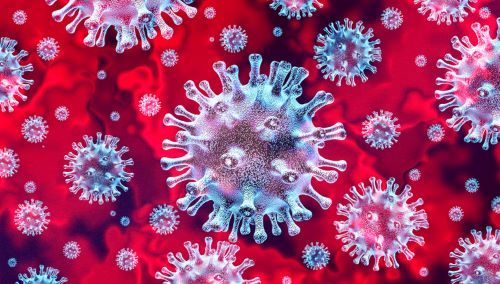One of the most confounding aspects of COVID-19 is that it’s hard to know if you have it.
The symptoms are similar to other respiratory illnesses. So when you get a stuffy nose or a fever you might have a cold or the flu…or you might have COVID. You really can’t tell unless you get tested.
The coronavirus does cause one particular symptom that is clear evidence you have it: loss of smell and taste. The problem is, not everyone infected experiences this telltale sign.
Now, a study has revealed a way to determine if you have COVID based on your symptoms.
Researchers from the University of Southern California looked at some 55,000 confirmed coronavirus cases. They compared the symptoms with those of other respiratory diseases such as the flu, MERS, and SARS.[1]
Dr. Joseph Larsen was one of the study authors. “The order of the symptoms matter,” he said.[2]
If fever is the first symptom you feel, you likely have COVID-19, the study found.
Coronavirus typically progresses with these symptoms in this order:
- Fever
- Cough
- Sore throat, headache, and muscle pain
- Nausea and vomiting
- Diarrhea
The researchers said sore throat, headache, and muscle pain are more “subjective” symptoms that don’t appear in all coronavirus cases. And of course, some people don’t get any symptoms.[3]
Knowing that coronavirus progresses differently “means that doctors can identify sooner whether someone likely has COVID-19, or another illness, which can help them make better treatment decisions,” said Dr. Larsen.
What To Do if You Have Coronavirus Symptoms
If you think you might have coronavirus:
- Alert your doctor and get a coronavirus test as soon as possible.
- Immediately separate yourself from others. Stay home. Don’t go to work. Don’t go shopping. Avoid physical contact with anybody. Try to use a separate bathroom and bedroom if possible.
- Wear a facemask. Do this even in your home if you live with others.
- Avoid sharing household items. Stay out of the kitchen if possible. Have someone bring you food.
- Clean surfaces you touch.[4]
- Take vitamin C. Although oral vitamin C has not been shown to specifically treat COVID-19, it “has been found to have many, many, positive impacts on the immune system,” said Dr. Malcolm Kendrick. He is a UK-based physician and a member of our Medical Advisory Board.[5]
He cites a comprehensive 2017 analysis in the journal Nutrients which concluded:
“Vitamin C contributes to immune defense by supporting various cellular functions of both the innate and adaptive immune system.
“Vitamin C deficiency results in impaired immunity and higher susceptibility to infections. Supplementation with vitamin C appears to be able to both prevent and treat respiratory and systemic infections.”[6]
Dr. Kendrick recommends two grams of vitamin C daily. If you’re already feeling ill, he recommends increasing the dosage to 10 grams.
We’re all on high alert. Whenever we feel the least bit unwell, we worry that we might have COVID-19.
But we are learning more about the coronavirus every day. The new study of COVID symptoms may put your mind at ease. You no longer need to hit the panic button at the first sign of a sniffle, ache, or cough.
Editor’s Note: Discover the single best supplement for stronger immunity… The fruit extract that helps 93% of people with respiratory viruses get better in just two days… The germ hotspot that most of us forget to sanitize. Find all this and more in Independent Healing’s Coronavirus Pandemic Guide. Go HERE.
Related Articles
Study Shows Docs Give 71% of Coronavirus Patients Useless Antibiotics
Coronavirus: The Heart Effects Are Scary
Why More Coronavirus ICU Patients Are Making It Out Alive
Like this Article? Forward this article here or Share on Facebook.
[1]https://www.frontiersin.org/articles/10.3389/fpubh.2020.00473/full
[2] https://www.theladders.com/career-advice/if-you-have-covid-19-this-is-the-first-symptom-you-will-get
[3]https://www.sciencealert.com/40-of-people-with-covid-19-don-t-have-symptoms-latest-cdc-estimate-says
[4]https://www.cdc.gov/coronavirus/2019-ncov/if-you-are-sick/steps-when-sick.html?CDC_AA_refVal=https%3A%2F%2Fwww.cdc.gov%2Fcoronavirus%2F2019-ncov%2Fabout%2Fsteps-when-sick.html
[5] https://www.institutefornaturalhealing.com/advisory-board/
[6] https://www.ncbi.nlm.nih.gov/pubmed/29099763

